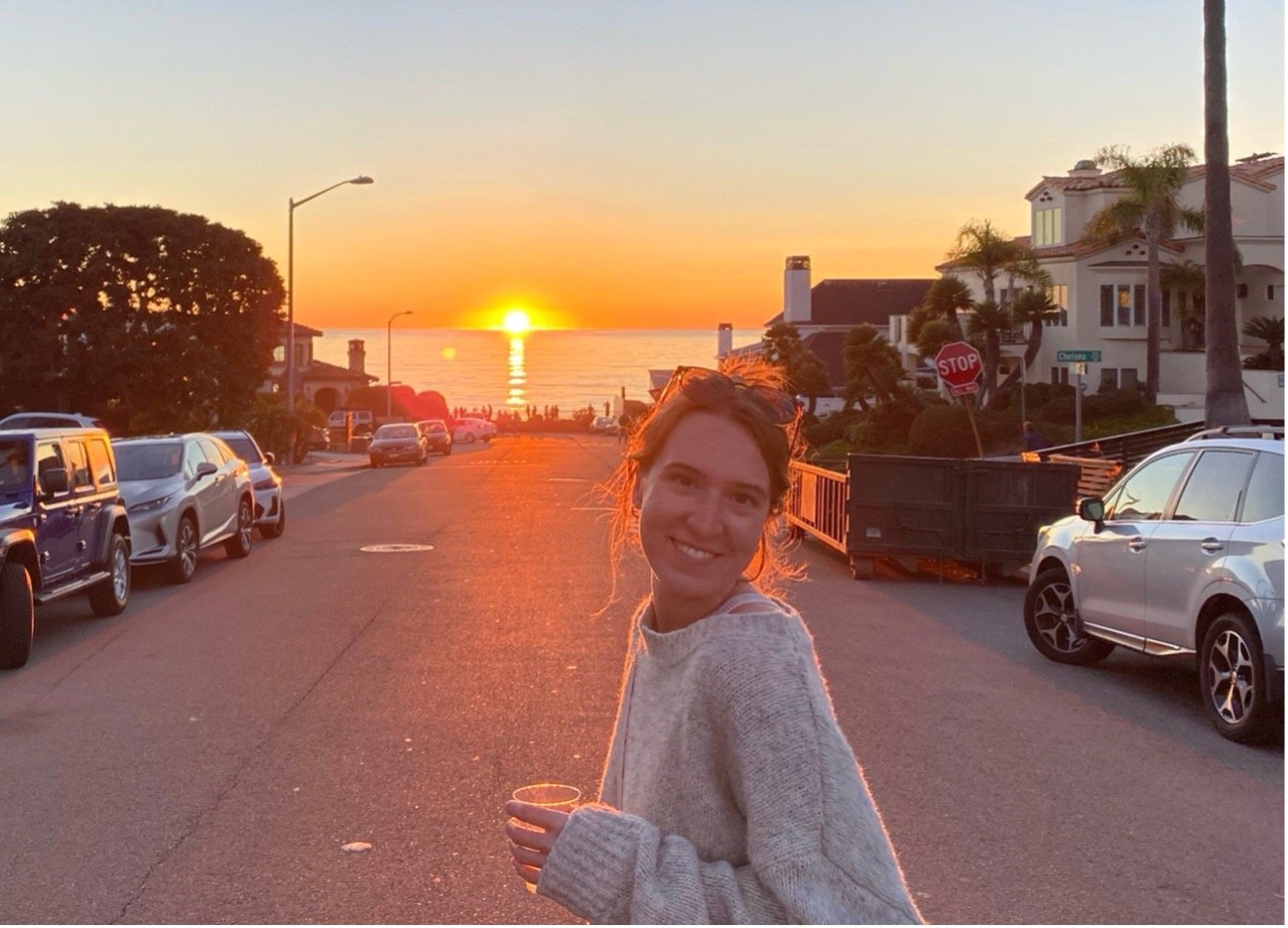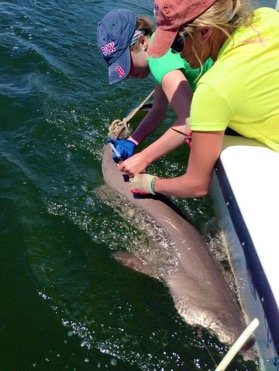What is your background and what are you studying or working on at the moment?
I got my bachelor’s degree in ocean engineering at the University of Rhode Island where I studied a little bit of everything, from coastal processes to robotics, acoustics, offshore renewable energy and more. When I graduated, I started working as a contractor for the Department of Defense specializing in acoustics and I really enjoyed the challenges associated with the study of underwater sound. However, I soon realized that I was way more intrigued by the study of the oceans from an interdisciplinary perspective, which is what brought me back to graduate school to study oceanography.
Right now, I’m working with professors Peter Franks and Jen MacKinnon and I’m sort of sitting between the biology and the physics. I get to use skills from my engineering background to study coastal physical processes in order to ask and answer biological questions. It’s a fun, interdisciplinary place to be, and since everything's connected in the ocean, it's exciting to be able to look at multiple perspectives and answer a wide range of questions. My research is a part of the Inner Shelf Dynamics Experiment. More specifically, I’m studying coastal transport patterns driven by the internal tide and wind-driven flows and how their variability directly impacts coastal benthic communities, such as the crabs and mussels you see along the shoreline. This research allows me to continuously learn and evolve as a scientist, which is exciting.
What keeps you excited and interested in working in the field of oceanography?
For me, it's looking outside my office window every day and seeing the ocean - it is always different and there are so many questions you can ask to try to better understand it. I’m learning something new about the ocean every single day, and yet I’m continuously reminded of how little we know about it, which constantly motivates me. It’s a privilege to be working at Scripps and to be surrounded by so many amazing scientists and engineers working across so many different disciplines, but everyone’s work ties together which I think is incredible and inspiring.
When you were a kid, did you expect to be a scientist or engineer?
I always dreamt of working in science. I knew early on I was headed in the direction of becoming a scientist or engineer since I always loved math and physics in school. However, once I had an NSF internship studying sand tiger sharks and migratory patterns in the Delaware Bay, I knew I wanted to be an oceanographer and pursue ocean sciences. But I still sometimes have to pinch myself and take a step back and recognize that I am a scientist, and after all these years, I’m getting to do what I’ve always wanted.
Were there any particular things from your childhood that drew you to study the ocean?
Yes, I would say my mom. She grew up in Newport, Rhode Island and she would always take my family there when we were kids. We spent a lot of time at the cliff walk and Second Beach watching the waves and the sea life, and it was always so amazing just how different the ocean was, between days and seasons, and even different parts of the coast. I just loved the salty water, the rhythm of tides and the sound of the waves - everything about it! So being able to study even just a part of that is amazing.
What skills or abilities do you think are useful when going into oceanography?
I would say for science, regardless of what the field of science it is, being able to say “I don't know”, and not take that as a weakness is a very good approach. Being able to take “I don’t know” as encouragement to go find an answer and to continually evolve your skillset will serve you very well. There is SO much to learn in oceanography and you're never going to be able to have everything figured out. It can be overwhelming and there will be days that are hard. But then there will be days of discovery that are great, and those are such a high. Being able to persevere, making the most of the highs and not being afraid to ask for help during the lows, is an important skill to learn, too.
What does a typical workday look like for you?
Typically, my morning starts with a lot of heavy data analysis in Matlab, and coffee. I try to incorporate a little bit of writing every day, because the end goal of this is getting papers out the door and getting your dissertation together, so I try to hone that skill most days. But ultimately every day is different and can be scattered with meetings, lab meetings, seminars, defenses, talks over coffee, and more.
What drew you to Scripps?
Growing up, I always thought of Scripps as this faraway place where scientists, marine biologists and physicists did such amazing work. I grew up on the East Coast, so Woods Hole [Oceanographic Institution] was right there and was very familiar, but there was something very interesting and unique about Scripps being on the Pacific Coast. The idea of learning about an entirely new coastline and ocean was appealing. Coming to Scripps provided all of that for me and introduced me to a whole new community of incredible people and research, it’s wonderful.
Is there a particular scientist/person/engineer/thing that inspires you?
I could definitely say “everyone here at Scripps”, I am truly inspired by the people that I surround myself with and I feel lucky to be here. But I think I would have to say my sister has inspired me the most throughout my life. She has always been an inspiring scientist and engineer who's encouraged me to pursue higher education. I really take a lot from the way she thinks about life and her career as well as the work that she does - she has so much passion and perseverance behind it, I’m lucky I have her to look up to.
Do you have a fun fact that you'd like to share that not everyone knows about you?
I am a huge pasta lover and make a lot of homemade pasta. Pasta is something that has become a big part of my time here at Scripps. On my weekends I often spend my time making various types of pasta - it's actually something that my advisor Peter Franks and I have in common and usually talk about at the end of our meetings. My favorite pasta shape is orecchiette. The name essentially means “small ear” since it’s a little concaved circle. Pasta making is a great way to take a break from your work at the end of the day, I highly recommend it!
Written by Kerstin Bergentz




